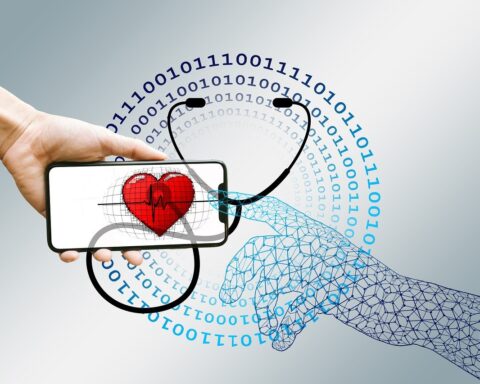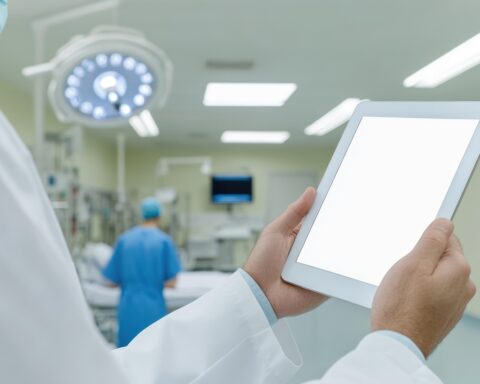In recent years, the field of clinical trials has witnessed a significant transformation due to advancements in technology. The integration of technology into clinical trials has revolutionized the way researchers conduct studies, collect data, and analyze results. This article explores the current trends in clinical trial technology and their impact on the research landscape.
Introduction to Clinical Trials
Clinical trials are crucial for evaluating the safety and efficacy of new drugs, medical devices, and treatment interventions. These trials involve a series of rigorous steps, from recruiting eligible participants to collecting and analyzing data. Traditionally, clinical trials relied on manual processes and paper-based documentation, which were time-consuming and prone to errors. However, with the advent of technology, the landscape of clinical trials has experienced a paradigm shift.
Importance of Technology in Clinical Trials
Technology has played a vital role in enhancing the efficiency, accuracy, and overall quality of clinical trials. It has enabled researchers to streamline various processes, reduce administrative burdens, and improve patient outcomes. By leveraging innovative tools and platforms, clinical trial professionals can now gather real-time data, remotely monitor patients, and make data-driven decisions. The integration of technology has also led to cost savings and accelerated the drug development process.
Current Trends in Clinical Trial Technology
Electronic Data Capture (EDC) Systems
One prominent trend in clinical trial technology is the adoption of Electronic Data Capture (EDC) systems. These systems replace the traditional paper-based data collection methods with digital platforms, allowing for secure and efficient data entry, storage, and analysis. EDC systems offer real-time data monitoring, automated validation checks, and improved data integrity.
Wearable Devices and Remote Monitoring
Wearable devices, such as fitness trackers and smartwatches, have gained popularity in clinical trials. These devices can collect valuable data on patients’ vital signs, activity levels, sleep patterns, and more. Remote monitoring through wearable devices enables continuous data collection, reduces the need for frequent hospital visits, and enhances patient engagement.
Artificial Intelligence (AI) and Machine Learning (ML)
AI and ML technologies have the potential to transform clinical trials by automating various tasks, predicting patient outcomes, and identifying patterns in large datasets. These technologies can aid in patient recruitment, optimize trial design, and improve the efficiency of data analysis. AI-powered algorithms can process vast amounts of data quickly, enabling researchers to make evidence-based decisions.
Blockchain Technology
Blockchain technology offers secure, transparent, and immutable data storage and management. In clinical trials, blockchain can enhance data integrity, protect patient privacy, and enable secure sharing of information among stakeholders. Smart contracts based on blockchain facilitate automated processes and ensure compliance with trial protocols.
Virtual and Augmented Reality (VR/AR)
Virtual and augmented reality technologies are being explored in clinical trials for various purposes. They can provide immersive experiences for patients, aid in patient education and training, and assist in surgical simulations. VR/AR can also be utilized for remote site monitoring and virtual site visits, reducing logistical challenges and costs.
Telemedicine and Remote Trial Management
Telemedicine has become increasingly relevant in clinical trials, especially during the COVID-19 pandemic. It allows for remote patient consultations, monitoring, and data collection, eliminating geographical barriers and enabling participation from diverse populations. Remote trial management platforms streamline the coordination of trial activities, reducing the need for in-person visits.
Big Data Analytics
The integration of big data analytics into clinical trials enables researchers to extract valuable insights from large datasets. Advanced analytics tools can identify trends, patterns, and correlations in patient data, facilitating personalized medicine and more precise treatment interventions. Big data analytics also aid in identifying safety signals and adverse events promptly.
Cloud Computing
Cloud computing has revolutionized data storage, collaboration, and scalability in clinical trials. Cloud-based platforms provide secure and centralized data repositories, allowing multiple stakeholders to access and analyze data in real-time. Cloud infrastructure offers flexibility, cost-efficiency, and scalability, particularly in multi-site and global clinical trials.
Mobile Applications
Mobile applications have become indispensable tools in clinical trials. These apps can improve patient engagement, facilitate data collection, and support remote monitoring. Mobile apps also enable real-time communication between patients and researchers, enhancing adherence to trial protocols and improving overall patient experience.
Patient Recruitment and Retention Tools
Recruiting and retaining participants is a significant challenge in clinical trials. Technology offers innovative solutions, such as online patient communities, social media platforms, and targeted advertising tools. These tools can improve participant enrollment rates, enhance diversity in study populations, and increase overall trial efficiency.
Benefits of Using Technology in Clinical Trials
The integration of technology in clinical trials brings numerous benefits to researchers, sponsors, and patients alike. Some key advantages include:
- Enhanced data accuracy and integrity
- Improved patient engagement and compliance
- Real-time data monitoring and analysis
- Cost savings and operational efficiencies
- Faster recruitment and enrollment
- Remote patient monitoring and reduced site visits
- Personalized medicine and targeted interventions
- Streamlined collaboration among stakeholders
Challenges and Limitations of Clinical Trial Technology
While technology offers significant advantages, it also comes with challenges and limitations. Some of the common hurdles include:
- Data security and privacy concerns
- Regulatory and compliance issues
- Limited access to technology in certain populations
- Technical infrastructure requirements and costs
- Adoption barriers and resistance to change
- Interoperability and data standardization challenges
- Ethical considerations in using emerging technologies
Future Directions and Emerging Technologies
The future of clinical trial technology holds immense potential for further advancements. Some emerging technologies that hold promise include:
- Internet of Things (IoT) for continuous monitoring
- Real-world evidence (RWE) integration
- Precision medicine and genomics
- Natural language processing (NLP) for data extraction
- Data visualization and predictive analytics
- Integration of real-time patient-reported outcomes (PROs)
- Digital biomarkers and physiological sensors
- Collaborative platforms for data sharing and collaboration
Conclusion
The integration of technology in clinical trials has ushered in a new era of efficiency, accuracy, and patient-centeredness. From electronic data capture systems to wearable devices, artificial intelligence, and telemedicine, technology has transformed every aspect of the clinical trial landscape. Despite challenges and limitations, the benefits of embracing these trends are undeniable. As technology continues to evolve, researchers and stakeholders must adapt to leverage its full potential and shape the future of clinical research.
FAQs
Q1: Are clinical trials using technology more effective than traditional trials?
A: Clinical trials that incorporate technology have shown improved efficiency, data accuracy, and patient engagement compared to traditional trials.
Q2: How can wearable devices benefit clinical trials?
A: Wearable devices provide continuous and remote monitoring, enabling real-time data collection, reducing hospital visits, and enhancing patient engagement.
**Q3: What is the role of artificial intelligence in clinical trials?**
A: Artificial intelligence can automate tasks, predict outcomes, and analyze large datasets, enabling more efficient patient recruitment, trial design, and data analysis.
Q4: How does blockchain technology impact clinical trials?
A: Blockchain enhances data integrity, privacy, and secure sharing among stakeholders, ensuring compliance with trial protocols and facilitating transparent data management.
Q5: What are some future technologies in clinical trials?
A: Emerging technologies include the Internet of Things (IoT) for continuous monitoring, real-world evidence integration, precision medicine, and data visualization, among others.
Author Bio
Mr. Manuj is a Pharma and Healthcare IT product expert. His vision is to continuously create IP by developing innovative and original software products for the Pharmaceutical and Healthcare Industries. Towards this Quad One has developed Clinion – Clinical Trial Solutions, Patient Connect, ETS, CLM and several other products. With their industry expertise, they also provide custom application development services to these industries.
Company: Clinion, Author Linkedin





